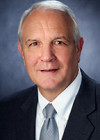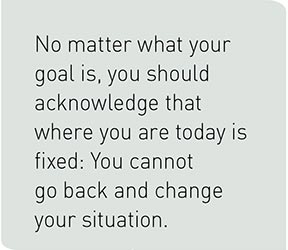HOME | ABOUT US | MEDIA KIT | CONTACT US | INQUIRE
HOME | ABOUT US | MEDIA KIT | CONTACT US | INQUIRE


There are many experts advising others on the subject of retirement. You hear things like save your money early and often. Establish a retirement plan. Find out what it is you love to do and don’t stop doing it, and of course, don’t carry too much debt. From the perspective of a non-expert (meaning one who has not retired), it seems we might learn a few things from the birds in the sky and the game of baseball.
One day a bird asked God, “When should I retire?” God answered, “The day that you are no longer able to fly.” The bird then asked God, “When will I be unable to fly?” God replied, “On the day you die.” The bird said, “Oh, guess I’ll keep on flying.”
Fortunately, most of us do fine afoot; no need for wings. Many believe they should continue to work indefinitely, while others encourage a middle ground as described in the book, Half-Time, written by Bob Buford, who suggests try reducing the hours you work without quitting altogether. Others, like Ferris Bueller, believe that taking an occasional day off suffices. Either way, the choice of what to do when you reach that point of “maybe it is time,” is your call.
In baseball terms (everyone is a baseball fan these days in a place called Kansas City), here are a few bases to touch. First, acknowledge that where you are today is fixed: You cannot go back and change your situation. You are either a good fastball hitter or not; you either hit for power or not. And like it or not, you are stepping into the batters’ box tomorrow, so get ready.

Unfortunately, choosing the right time to quit—excuse me, “retire”—can be influenced by decisions that are out of our control. Of course, good skills and good luck do matter. So if doing what you have always done is satisfying, then why stop? Warren Buffet supports this position. If you go this route, give up your Southwest Reward Miles—you’ll have a Net Jet membership.
If, however, you have an unfulfilled dream (and I don’t mean playing competitive golf on the PGA Seniors Tour) then say goodbye to your former identity, and seek something new.
Robert Frost confronts us with a career choice in the poem, “A Road Not Taken” believing that choosing the road less traveled made all the difference. The poem stresses that you have options, which perhaps explains why we deliberate so long on when to retire and what to do. One can only imagine the few options that existed in 1916 when “A Road Not Taken” was written, compared to life today. Maybe the sequel to Frost’s poem should be “Too Many Roads.”
Worse case, regardless of how you finish, you can say “I did it my way” (which worked for that skinny Sinatra kid from Hoboken). Or like ace reliever Dan Quisenberry, who as you may not be aware after retiring from baseball decided to write poetry, and he joyfully undertook that throughout the remaining years of his life.
With that in mind, here are a few retirement-timing tips:
1. Run the numbers early and often. Don’t become old and poor. This means a financial budget (ugly words for most of us) written in your 20s, again in your 30s, again in your 40s, and again in your 50s so that by age 60, you are done with budgets.
2. If you think it is too late to avoid becoming old and poor, think again. And understand that poor by U.S. standards is rich by the standards of most other countries in the world. In other words, just settle for a little less that than your neighbor.
3. Identify in specific terms what you’ve always wanted to do and go do it. Dan Q. needed little money to write poetry.
4. If all the stars are aligned and you do not foresee becoming old and poor, then continue doing what you have always done, or seize the moment and explore the unknown.
5. Share your knowledge with others who are willing to listen. Grand-children would be a good start.
6. Stay active and healthy, because if you don’t, the rest probably doesn’t matter.
By the way, there is one guarantee regardless of what you do—you will cross the finish line. Until that day comes, never forget that sage advice from Ferris Bueller, “Life moves pretty fast. If you don’t stop and look around once in a while, you could miss it.”